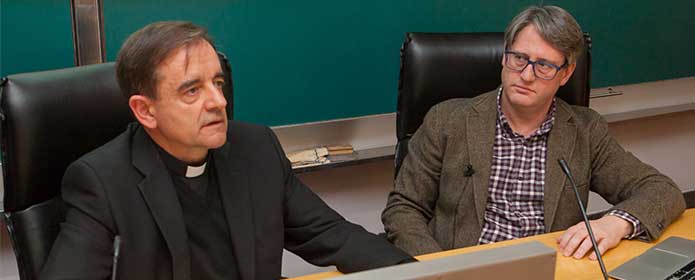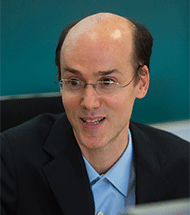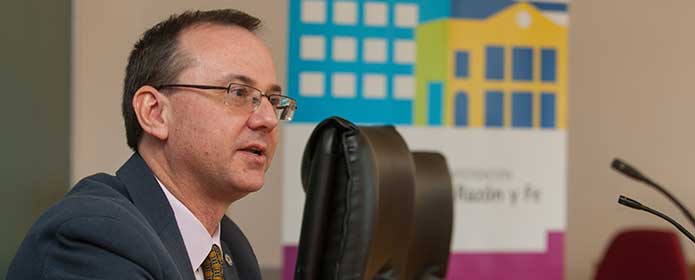"The relationship between science and religion is big business today, especially in the Anglo-American world."
Jaume Navarro, member of the Praxis Group of the Public University of the Basque Country, analyzes the conflict between science and religion at the University of Navarra.

"The relationship between science and religion in the Anglo-American world is big business today. They are a constant source of books, seminars and programs of research". This was stated at the University of Navarra by Jaume Navarro, researcher of Ikerbasque and member of the Praxis Group at School of Philosophy of the Public University of the Basque Country (UPV/EHU).
In his message he emphasized that this does not occur on the European continent or in other cultures. "It occurs in the Anglo-American world in part because of the long tradition of natural theology, with Protestant roots, which has a strong impact on the development of the sciences in the 19th century."
graduate in Physics and PhD in History of Science from the Autonomous University of Barcelona, Navarro gave the first seminar of the year at group 'Science, reason and faith', which was titled degree scroll "The science-religion conflict, an invented reality? During the same he exposed some of the elements that make up the complex relationships between these different actors and that are at the origin of the conflict thesis .
He explained that such relationships are often simplified and presented by some as a struggle between modern reason and obscurantist superstitions. "However," he said, "most scientists and philosophers remain indifferent to the so-called "thesis of conflict" and feel more identified with one of the other three categories of the typology proposal by Barbour: indifference, dialogue or integration.
Asked about the prolongation in time of the alleged conflict between science and religion, he assured that "it continues to be the great failure of historians: however much programs of study academics insist on the complexity of the relationship between science and religion, or even on the ineffectiveness of these two concepts as categories of historical analysis, this simplifying myth continues to enjoy good health among public opinion, but not among historians and other academics".
For this reason, in view of the "great diffusion" of the thesis conflict in the public sphere, the speaker called for a historical study to highlight its origins and its current popularity.
Jaume Navarro has been researcher at Cambridge University, Imperial College (London) and the Max Planck Institut für Wissenschaftsgeschichte (Berlin).

